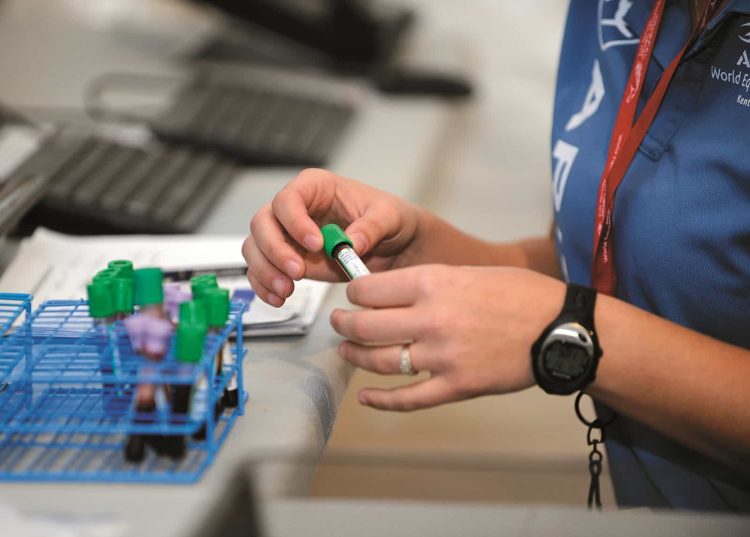Essential Medication Rules: A Guide to Safe and Effective Medication Use

However, taking medication safely involves more than just following instructions on a prescription bottle. Understanding the principles of medication use can prevent side effects, maximize effectiveness, and ensure that you’re getting the most from your treatment. This guide will cover essential medication rules, from understanding prescriptions to managing interactions, monitoring side effects, and proper storage. Following these principles can empower you to manage your health proactively and minimize risks.
1. Understanding Your Medication
Know What You’re Taking
- Each medication has a purpose, whether it’s to control blood pressure, reduce pain, or manage symptoms of an illness. Before starting any new medication, make sure you understand why it’s being prescribed and how it works in your body.
Read the Medication Label Carefully
- Prescription labels contain vital information, including dosage, timing, and special instructions (such as whether to take with food). Misreading or overlooking these instructions can lead to ineffective treatment or adverse reactions.
Be Aware of Active and Inactive Ingredients
- Active ingredients are what make the medication effective. However, inactive ingredients (like preservatives or colorants) can sometimes cause allergic reactions. If you have known sensitivities, discuss them with your pharmacist or doctor.
2. Follow Dosage Instructions
Stick to the Prescribed Dosage
- Never take more or less than the prescribed dosage. Altering the amount can reduce the drug’s effectiveness or increase the risk of side effects. Taking more of a medication does not mean it will work faster.
Timing Matters
- Medications are often prescribed to be taken at specific times, such as every 12 hours or once daily, to maintain stable levels in your bloodstream. Create reminders or set alarms to help keep your routine consistent.
Consider Food and Beverage Interactions
- Certain foods and beverages can affect how medications work. For instance, grapefruit juice can interfere with several drugs, while dairy products may reduce the effectiveness of antibiotics. Check with your healthcare provider or pharmacist about any dietary restrictions.
3. Avoid Mixing Medications Without Guidance
Understand Drug Interactions
- Some drugs can interact with others, leading to reduced effectiveness or increased risk of side effects. Always inform your healthcare provider about all medications and supplements you are taking to prevent dangerous interactions.
Avoid Alcohol with Medications
- Alcohol can amplify the effects of certain medications (such as sedatives or pain relievers) or interfere with others, leading to potentially harmful side effects. As a general rule, avoid alcohol unless explicitly permitted by your doctor.
4. Adhere to Special Instructions
Storage Requirements
- Medications need to be stored under specific conditions to remain effective. Some may need refrigeration, while others should be kept in a cool, dry place. Avoid leaving medications in places with extreme temperatures, like in a car during summer.
Handling Liquid and Injectable Medications
- Liquid and injectable medications often require precise measurements. Use only the measuring device provided to avoid taking the incorrect dose. For injectables, ensure you understand proper technique and disposal of needles.
Understand Extended-Release and Regular Medications
- Extended-release (ER) medications are designed to dissolve slowly over time, providing a longer-lasting effect. Never crush or break ER medications, as doing so can release the drug all at once, increasing the risk of side effects.
5. Monitor for Side Effects
Know Common and Serious Side Effects
- Understanding the potential side effects of a medication can help you recognize if something is wrong. While some side effects are mild (like drowsiness or dry mouth), others, such as allergic reactions or difficulty breathing, may require immediate medical attention.
Report Side Effects to Your Healthcare Provider
- If you experience any unexpected or severe reactions, contact your doctor right away. They may need to adjust the dosage, change the medication, or suggest a different treatment approach.
Use a Symptom Diary
- Keeping a record of any symptoms you experience can be helpful for tracking how a medication affects you over time. This can also assist your doctor in making adjustments if needed.
6. Use Caution with Over-the-Counter Medications
Read Labels on Over-the-Counter (OTC) Medications
- Many OTC drugs contain ingredients that can interact with prescription medications. For example, decongestants may raise blood pressure and could be risky for people on blood pressure medication.
Avoid Duplicate Ingredients
- Some OTC medications may contain similar ingredients to your prescription medications, like acetaminophen. Taking both simultaneously can lead to an overdose, so always read labels carefully.
7. Finish the Full Course of Prescribed Medications
Especially Important for Antibiotics
- Antibiotics are among the most critical medications to complete as prescribed. Stopping them too early can lead to antibiotic resistance and may not fully treat the infection, leading to a relapse.
Avoid Stockpiling Medications
- Only keep the medication you need for the duration of your treatment. Holding onto excess medication can lead to accidental misuse later.
8. Discuss Alternatives and Generic Options
Generic Drugs Can Be Effective and Affordable
- Generic medications offer the same active ingredients and effectiveness as brand-name drugs but are often less expensive. Ask your healthcare provider if there is a generic alternative available.
Explore Cost-Saving Options
- If you’re struggling with the cost of medication, some pharmacies offer discounts or membership programs. Non-profit organizations may also provide assistance for specific medications or chronic conditions.
9. Educate Yourself on Special Precautions for Specific Groups
Pregnant and Breastfeeding Individuals
- Some medications can harm a developing fetus or affect a breastfeeding baby. Inform your doctor if you are pregnant, planning to become pregnant, or breastfeeding before starting any new medication.
Children and Elderly Patients
- Dosage requirements differ significantly for children and the elderly. Always follow age-specific guidelines and be vigilant for side effects, as children and elderly individuals are often more sensitive to medications.
10. Keep a Personal Medication Record
Maintain a Medication List
- Having a comprehensive list of all medications, including prescriptions, OTC drugs, and supplements, can be a lifesaver during emergencies. Include the name of each drug, dosage, frequency, and prescribing doctor.
Share Your Medication Record with Healthcare Providers
- Keep your healthcare team up-to-date on your medication record, as this can prevent drug interactions and improve your overall care.
11. Avoid Medication Sharing and Self-Diagnosing
Never Share Prescription Medications
- Sharing medications can be dangerous, even if someone else has similar symptoms. Dosages and drug interactions vary for each individual, so avoid sharing your prescriptions with others.
Do Not Self-Prescribe or Adjust Dosages Without Medical Advice
- Attempting to adjust your dose without consulting a doctor can lead to severe health complications. If you feel a medication is not working or causing side effects, speak with your healthcare provider about alternatives.
12. Check Expiration Dates
Do Not Use Expired Medications
- Expired medications may lose effectiveness or become unsafe. If you have old medication at home, check the expiration date and dispose of it appropriately.
Dispose of Medications Safely
- To avoid contaminating water systems or accidental ingestion, avoid throwing medication directly into the trash or flushing it. Many pharmacies offer disposal programs for unused medications.
13. Take Extra Precautions When Traveling
Plan Ahead with Sufficient Medication
- If you’re traveling, make sure to pack enough medication for the duration of your trip and a few extra days. Keep medications in their original containers to avoid issues with airport security.
Check for Special Storage Needs
- Some medications may need refrigeration or protection from sunlight. Plan accordingly to ensure they remain effective during your trip.
Conclusion
Medication safety is essential for effective treatment and overall health. By understanding your medication, following dosage and timing guidelines, avoiding dangerous interactions, and regularly communicating with your healthcare team, you can ensure that you’re using medication safely and effectively. Proactively managing your medication can enhance your treatment’s effectiveness, reduce the risk of side effects, and ultimately contribute to a healthier life. Following these fundamental medication rules empowers you to make informed decisions about your health and maximize the benefits of your treatment.





